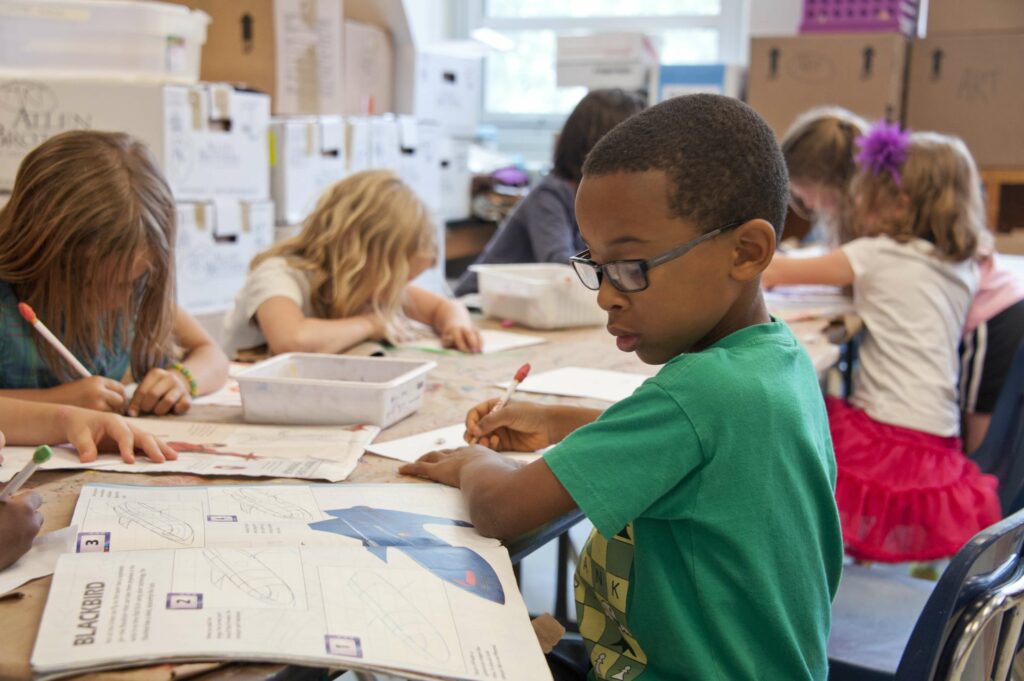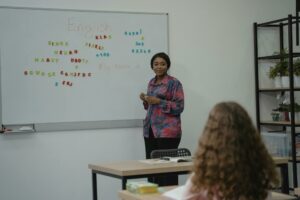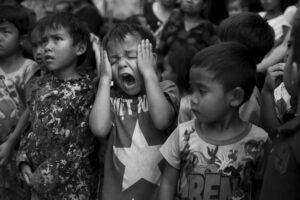Many children face significant challenges within mainstream schools in today’s educational landscape. These challenges can hinder their learning and development, impacting their academic performance and well-being. Open Minds Campus, a child-directed school drawing from Montessori, Unschooling and the Finland School System, offering the British syllabus, provides an alternative approach to address these difficulties and empower learners to reach their full potential. This blog will explore children’s challenges in schools, shed light on their struggles, and highlight the benefits of an alternative education system.
John Taylor Gatto speaks about why schools are failing in this article.
Understanding the Challenges in Schools:
One-size-fits-all approach:
Mainstream schools often employ a standardised curriculum that is designed to cater to a large number of students. However, this approach fails to acknowledge individual learners’ unique learning styles, strengths, and interests. As a result, children may struggle to engage with the material and feel disconnected from the learning process.
Lack of personalised attention:
In overcrowded classrooms, it becomes challenging for teachers to provide individualised attention to each student. This lack of personalised support can lead to students falling behind, feeling neglected, and losing motivation to learn.
Emphasis on grades over holistic development:
Mainstream schools often prioritise academic achievements and grades, overshadowing the importance of holistic development. This narrow focus can create undue pressure on students, fostering a fear of failure and stifling their creativity and self-expression.
Limited opportunities for self-paced learning:
Children learn at different rates, and their ability to grasp concepts varies. Unfortunately, mainstream schools generally follow a rigid pace that may leave some students struggling to keep up while others are unchallenged. This can result in a demotivating environment where learners feel overwhelmed or bored.
The Biggest Challenge Children Face in School Today:
One of the most significant challenges faced by children in schools today is the need for more individualised attention and support. When students feel their unique needs are not being addressed, it can hinder their academic progress, self-esteem, and overall well-being. Each child possesses different strengths, learning styles, and interests. Schools can unlock their potential and foster a love for learning by providing personalised attention and tailored instruction.
Children can encounter various difficulties during their schooling years. Some everyday struggles include:
Understanding complex concepts:
Certain subjects or topics may challenge students’ grasp due to their abstract or intricate nature. When teachers fail to provide adequate explanations or alternative approaches, students may struggle to understand and apply these concepts effectively.
Peer pressure and social dynamics:
Schools are social environments where children interact with their peers daily. Peer pressure, bullying, and social dynamics can create anxiety and emotional distress, making it difficult for students to focus on their studies and thrive academically.
Managing time and workload:
The demands of schoolwork, extracurricular activities, and personal commitments can overwhelm students. Struggling with time management and organisation skills can increase stress and compromise academic performance.
Lack of motivation:
When students find the curriculum irrelevant or uninteresting, they may lack the motivation to engage in their studies actively. This disengagement can negatively impact their learning outcomes and hinder their overall growth.
Here’s another article by John Holt.
Children in mainstream schools may experience various difficulties and problems, including:
Learning disabilities or special needs:
Mainstream schools often struggle to accommodate learners with diverse learning needs, such as those with learning disabilities or special needs. These students may require additional support, accommodations, or alternative teaching methods that mainstream schools may not always be equipped to provide.
Standardised testing pressure:
The focus on standardised testing can create immense pressure on students to perform well. This pressure may result in increased stress and anxiety, negatively impacting their mental health and overall academic performance.
Why Mainstreaming can be Challenging:
While mainstream schools may seem to serve as a suitable option for many students, the challenges mentioned above highlight the limitations of this educational system. Mainstreaming can be problematic when it fails to address individual needs, restricts creative learning opportunities, and prioritises standardised testing over holistic development. It is essential to recognise that a one-size-fits-all approach will not effectively nurture the unique abilities and learning styles of all children.
Here is a blog on building a growth mindset in children:
Conclusion:
The challenges faced by children in mainstream schools are significant and can hinder their educational journey. Open Minds Campus, a child-directed school offering the British syllabus, provides an alternative that addresses these challenges head-on. Open Minds Campus creates an environment where children can thrive academically, emotionally, and socially by focusing on personalised attention, tailored instruction, and holistic development. We can unlock every learner’s potential through such alternative approaches, paving the way for a brighter and more inclusive future.
Remember, education is about nurturing the individual and fostering a love for learning, ensuring no child is left behind.
You can access Open Minds Campus.Author: Yasteel Sewnarain – Facilitator at Open Minds Campus



